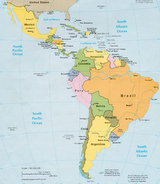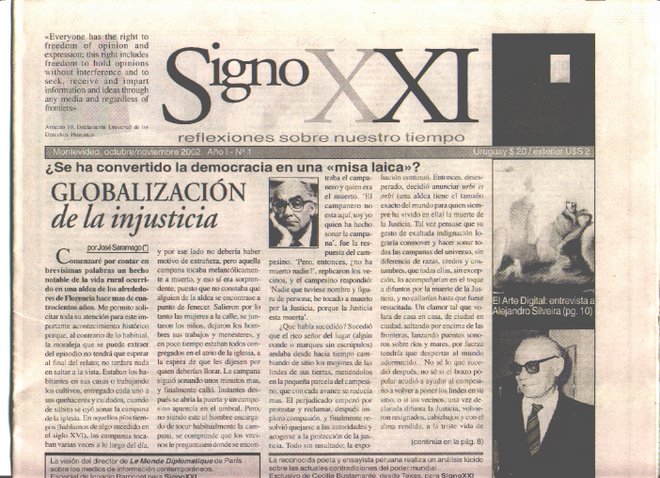In Study Abroad, Gifts and Money for Universities
As overseas study has become a prized credential of the undergraduate experience, a competitive, even cutthroat, industry has emerged, with an army of vendors vying for student money and universities moving to profit from the boom.

Brendan Jones, a former student at Columbia University, spent his junior year at Oxford through an outside company, not a program approved by Columbia. After Columbia refused to transfer those credits, he stayed at Oxford and graduated.
At many campuses, study abroad programs are run by multiple companies and nonprofit institutes that offer colleges generous perks to sign up students: free and subsidized travel overseas for officials, back-office services to defray operating expenses, stipends to market the programs to students, unpaid membership on advisory councils and boards, and even cash bonuses and commissions on student-paid fees. This money generally goes directly to colleges, not the students who take the trips.
Critics say that these and similar arrangements, which are seldom disclosed, typically limit student options and drive up prices for gaining international credentials compared with the most economical alternative — enrolling directly in a foreign university, paying generally lower tuition to that institution and having the credits transferred. Some campuses require students to use one of several affiliated providers, but some even have exclusive arrangements with study-abroad agents, further limiting options.
Many of these perks are similar, if not identical, to ones uncovered in multiple investigations into the student loan industry, where lenders gave colleges bonuses tied to loan volume, seats on advisory boards and free travel to conferences in the race to get on so-called preferred lender lists. The similarities raise questions about how many aspects of higher education involve such little-known incentives that may have large impacts on the college experience.
For example, the American Institute for Foreign Study offers college officials a free trip to one of its overseas sites for every 15 students that sign on and a 5 percent share of the fees that students pay, according to a copy of its agreement with the University of Mary Washington; if fewer than 15 sign on, the payback is 2 percent. According to its Web site, the institute has deals with universities nationwide, including the University of California, Berkeley; Fordham and Pace in New York, and Rice in Houston.
Amy Bartnick-Blume, a vice president of the nonprofit Institute for Study Abroad, which is affiliated with Butler University in Indiana, said the institute gave colleges with which it has “exclusive agreements” up to $500 per student for restricting them to the institute’s programs in a given region. The practice in effect shuts out the competition. Ms. Bartnick-Blume said that the colleges decide whether to pass the savings on to students and that the institute had no way of knowing how many do.
“We’re all wringing our hands about how to make it possible for lower income kids to participate in study abroad,” said Barmak Nassirian, associate executive director at the American Association of Collegiate Registrars and Admissions Officers. “But one of the reasons it costs so much is all this institutional mediation.”
No regulations govern study abroad programs, except a voluntary code of ethics from an industry trade group that limits members to “gifts that are of nominal value and that do not seem intended to influence professional decisions.”
But Brian Whalen, the president of the Forum on Education Abroad, another industry group that is charged with creating standards for study abroad programs, said more transparency was needed so that students knew about arrangements with outside providers that had an impact on their costs or options.
Dr. Whalen, who is also the executive director of study abroad at Dickinson College in Carlisle, Pa., said overseas site visits for educators, when given in exchange for student participation in a program, crossed an ethical line. As for payments from outside providers, he said, the danger is that colleges may come to rely on the money. Then, he said, study abroad officials may think, “If it goes away, we’re going to be in trouble with our office.”
“It creates an incentive to bring up the numbers of students using a certain organization,” Dr. Whalen said.
Officials at universities and study abroad agencies, though, defend the system, saying the perks are relatively minor, do not obligate a college to choose a particular program and are so common that they do not sway decisions.
Ms. Bartnick-Blume of the Butler institute described the financial incentives as recognition for helping the institute do its job better. When colleges promote Butler exclusively or as a major program in certain countries, she said, the institute can spend less time and money recruiting students on the campus “since we know we have a very captured audience for those students.”
- 1
- 2
-------------------------------------------------
Ir al Sitio principal Escritos críticos / Ensayos
www.majfud.50megs.com
Reflexiones sobre nuestro tiempo
-------------------------------------------------




1 comentario:
Everything is fine, am happy about your blog. Thanks admin for sharing the unique content, you have done a great job I appreciate your effort and I hope you will get more positive comments from the web users.
Study Abroad Consultants in Chennai
Publicar un comentario